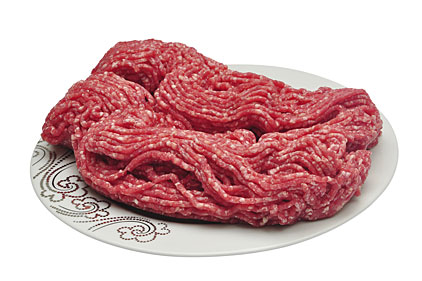 FSIS has issued a proposed rule titled “Records to be Kept by Official Establishments and Retail Stores that Grind Raw Beef Products.” Under this proposed rule, all official establishments and retail stores that produce raw ground beef would have to maintain records to adequately identify all raw materials used in the production of the ground product.
FSIS has issued a proposed rule titled “Records to be Kept by Official Establishments and Retail Stores that Grind Raw Beef Products.” Under this proposed rule, all official establishments and retail stores that produce raw ground beef would have to maintain records to adequately identify all raw materials used in the production of the ground product.
Comments on the proposal are due 60 days after publication in the Federal Register.
Since 2002, FSIS has encouraged establishments and retailers to document raw materials used in ground products. If the grinder does not have records of what specific raw materials (beef cut, supplier and supplier production day) went into the grind, FSIS will not be able to trace back to the source of Salmonella or E. coli O157:H7 if the ground product causes illness. Without a traceback, potentially implicated product from the same source would remain in commerce.
The agency has come to the conclusion that voluntary compliance simply is not ensuring that the information about source materials is available in an outbreak investigation. According to the data discussed in the proposed rule: (a) ground product is the No. 1 product linked to illness, (b) in many cases, the product was ground at retail, and (c) in most of the investigations, the grinding records were incomplete or nonexistent.
Based on the above, FSIS issued the proposed rule to mandate a grinder document the following in its “grinding logs” for each grinder lot of ground production:
- The name, contact, telephone number and establishment number of each supplier of the raw materials used to make each lot of raw ground beef;
- The lot numbers and production dates of the raw materials used;
- The names of the raw materials used (including beef components and any carryover product);
- The amount of each beef component used; and
- The date and time each lot of raw ground beef was produced.
In addition, the log should include when the grinding equipment and related food-contact surfaces were cleaned and sanitized so potential cross-contamination can be assessed.
The rule would also apply to product ground at a customer’s request. The rule would not apply to convenience stores, restaurants and meat wholesalers.
In reviewing the discussion accompanying the proposed rule in the Federal Register, one gets the sense that the discussion is all about justifying the decision to mandate grinding logs, especially at retail. There is no real discussion about how an establishment or retailer can find the information on the incoming raw materials or how to efficiently complete the logs.
Given that in many cases the grinding logs were incomplete, not absent, FSIS could have included suggestions or expectations as to how the logs should be maintained to maximize the logs’ usefulness in conducting outbreak tracebacks.
On the plus side, since FSIS did not include implementation in its proposal, companies and trade associations have a blank slate to proffer suggestions in their comments — something all concerned should definitely consider.





Report Abusive Comment